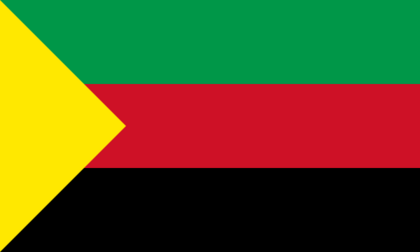Azawad
Обновлено:
30 нояб. 2021

Посетить здесь
Azawad, or Azawagh (Tuareg: Azawaɣ, or Azawad; أزواد) is a former short-lived unrecognised state from 2012 to 2013. Azawagh (Azawaɣ) is the generic Tuareg Berber name of all Tuareg Berber areas, especially the northern half of Mali and northern and western Niger. Its independence was declared unilaterally by the National Movement for the Liberation of Azawad (MNLA) in 2012, after a Tuareg rebellion drove the Malian Army from the region. Azawad, as claimed by the MNLA, comprises the Malian regions of Timbuktu, Kidal, Gao, as well as a part of Mopti region, encompassing about 60 percent of Mali's total land area. Azawad borders Burkina Faso to the south, Mauritania to the west and northwest, Algeria to the north and northeast, and Niger to the east and southeast, with undisputed Mali to its southwest. It straddles a portion of the Sahara and the Sahelian zone. Gao is its largest city and served as the temporary capital, while Timbuktu is the second-largest city, and was intended to be the capital by the independence forces. On 6 April 2012, in a statement posted to its website, the MNLA declared "irrevocably" the independence of Azawad from Mali. In Gao on the same day, Bilal Ag Acherif, the secretary-general of the movement, signed the Azawadi Declaration of Independence, which also declared the MNLA as the interim administrators of Azawad until a "national authority" could be formed. The proclamation was never recognised by any foreign entity, and the MNLA's claim to have de facto control of the Azawad region was disputed by both the Malian government and Islamist insurgent groups in the Sahara. At this time, a rift was developing with the Islamists. The Economic Community of West African States, which refused to recognise Azawad and called the declaration of its independence "null and void", warned it could send troops into the disputed region in support of the Malian claim. Tuareg military leader Moussa Ag Achara Toumane affiliated with the MSA (French: "Movement pour le Salut de l'Azawad"; English: "Movement for the Salvation of Azawad") was interviewed by the French language news outlet "TV5MONDE," during its "Le journal Afrique" or "African Journal" segment, about hostile events that occurred between the MNLA and other separatist groups against jihadi extremists in 2012. He claimed that jihadi groups, and the Ansar Dine in particular, had been in the region of Azawad for 10 years before the circumstances which led to the Azawadi Declaration of Independence. Locals had heard of their extremist views (in respect to shari'a law) then subsequently distanced themselves from the jihadis. Ag Toumane further asserted that the death of Col. Mu'ammar el Gaddafi destabilised the political landscape for Sahelians from Mali and Niger to such a degree that it was described as "disastrous." The Tuareg rebels allegedly went into a "survival mode" for 5 years after his death which were fraught with socio-political and socio-economic crises. Disorganised and unaware of moderate militias, some joined jihadi groups but left when acquainted with better options; they aimed to join movements that were "good" in nature and organised for humanitarian causes for the betterment of Azawad. When asked about the speculated alliance between the MNLA and the Ansar Dine, Ag Toumane said he "personally did not know of the alliance" and referred back to the distance Azawadi locals kept from them. On 14 February 2013, the MNLA renounced its claim of independence for Azawad and asked the Malian government to start negotiations on its future status. The MNLA ended the ceasefire in September of the same year after government forces reportedly opened fire on unarmed protesters.